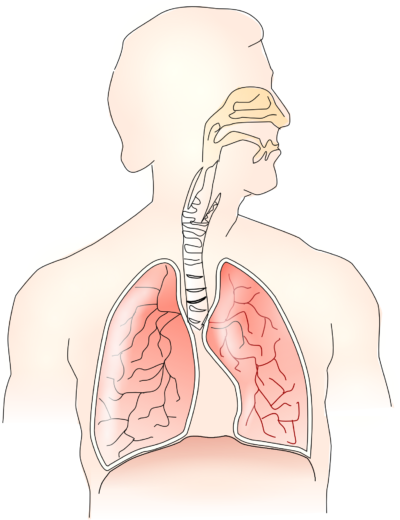Understanding Asthmatic Bronchitis: Symptoms, Causes, and Management
Asthmatic bronchitis, a condition at the intersection of asthma and bronchitis, can significantly impact an individual’s respiratory health. Characterized by inflammation of the airways and the presence of both asthmatic and bronchitic symptoms, this condition requires careful management and understanding. In this comprehensive guide, we’ll delve into the symptoms, causes, and effective management strategies for asthmatic bronchitis.
Symptoms of Asthmatic Bronchitis
Asthmatic bronchitis manifests with a range of symptoms that can vary in intensity and duration. Common symptoms include a persistent cough, wheezing, and shortness of breath. Individuals might experience tightness in the chest, particularly during physical activity or exposure to triggers. This tightness can often be accompanied by mucus production and difficulty in clearing the airways. Such symptoms can interfere with daily activities and disrupt sleep, leading to reduced quality of life.
Causes and Triggers
Understanding the underlying causes and triggers of asthmatic bronchitis is crucial for effective management. The condition often stems from the combination of asthma and bronchitis, with both genetic and environmental factors playing a role. Individuals with a family history of asthma or bronchitis are more susceptible. Environmental triggers like allergens, pollutants, cold air, and respiratory infections can exacerbate the condition.
Diagnosis Process
Accurate diagnosis is paramount to provide proper treatment and management. Healthcare professionals use a combination of medical history, physical examinations, and diagnostic tests to confirm asthmatic bronchitis. Lung function tests, such as spirometry, can help assess airway obstruction and lung capacity. Distinguishing asthmatic bronchitis from other respiratory conditions is crucial for tailoring an effective treatment plan.
Treatment Approaches
Asthmatic bronchitis management involves a multi-faceted approach tailored to individual needs. Treatment aims to alleviate symptoms, reduce inflammation, and improve lung function. Short-term relief often involves the use of bronchodilators, which help open up airways and ease breathing. Inhaled corticosteroids, a common long-term treatment, work to reduce airway inflammation and prevent exacerbations.
Lifestyle Modifications
Beyond medical treatment, certain lifestyle adjustments can significantly contribute to managing asthmatic bronchitis. Avoiding known triggers such as cigarette smoke, air pollution, and allergens can help prevent symptom flare-ups. Engaging in regular physical activity, maintaining a healthy weight, and staying hydrated contribute to overall lung health. Incorporating stress-reducing practices can also positively impact respiratory function.
Managing Symptoms
Effectively managing acute symptoms at home is essential for individuals with asthmatic bronchitis. Proper use of prescribed inhalers and medications, along with following an asthma action plan, can help individuals gain control over sudden exacerbations. Monitoring peak flow measurements and recognizing early warning signs can guide prompt intervention.

Preventive Measures
Prevention plays a crucial role in managing asthmatic bronchitis and minimizing its impact on daily life. Collaborate with healthcare professionals to create a personalized asthma action plan. This plan should outline steps to avoid triggers, manage medications, and respond to worsening symptoms. Regular check-ups and discussions with your healthcare provider can help fine-tune your plan over time.
Impact on Daily Life
Asthmatic bronchitis can significantly influence an individual’s routine and activities. Work, school, and social engagements may be affected by symptom flare-ups and the need for ongoing management. Open communication with employers, teachers, and peers about your condition can lead to a more supportive environment. Making necessary accommodations and adjustments can help maintain a balanced and fulfilling lifestyle.
Latest Research and Innovations
The field of respiratory health is constantly evolving, and so are the approaches to managing asthmatic bronchitis. Stay informed about the latest research findings and innovations in treatment and management. Emerging therapies, advancements in inhaler technology, and novel diagnostic methods could potentially transform how individuals with asthmatic bronchitis experience and manage their condition.
Frequently Asked Questions (FAQs) About Asthmatic Bronchitis
Q: What is asthmatic bronchitis?
A: Asthmatic bronchitis is a condition that combines features of both asthma and bronchitis. It involves inflammation of the airways, leading to symptoms like coughing, wheezing, and difficulty breathing.
Q: How is asthmatic bronchitis diagnosed?
A: Diagnosis involves a combination of medical history, physical exams, lung function tests like spirometry, and discussions about symptoms. Differentiating it from other respiratory conditions is essential for proper treatment.
Q: What triggers asthmatic bronchitis flare-ups?
A: Common triggers include allergens (pollen, dust), respiratory infections, air pollution, cold air, and exposure to smoke. Identifying and avoiding these triggers can help prevent exacerbations.
Q: What treatment options are available for asthmatic bronchitis?
A: Treatment includes bronchodilators for acute relief, inhaled corticosteroids for long-term management, and lifestyle changes. A personalized asthma action plan is often recommended.
Q: Can lifestyle changes help manage asthmatic bronchitis?
A: Yes, lifestyle adjustments like avoiding triggers, regular exercise, maintaining a healthy weight, and staying hydrated can contribute to better management of symptoms.
Q: Can asthmatic bronchitis affect daily activities?
A: Yes, symptom flare-ups can impact work, school, and social engagements. Open communication with employers, teachers, and peers about your condition can lead to better understanding and support.
Q: Is there ongoing research on asthmatic bronchitis?
A: Yes, the field of respiratory health is continually evolving. Stay informed about the latest research findings, therapies, and advancements in managing asthmatic bronchitis.
Q: Can children develop asthmatic bronchitis?
A: Yes, children can develop this condition. It’s important for parents and caregivers to monitor symptoms and seek medical attention if needed.
Q: Can asthmatic bronchitis be prevented?
A: While it can’t always be prevented, following a personalized asthma action plan, avoiding triggers, and maintaining a healthy lifestyle can help minimize symptom flare-ups.
Q: Is asthmatic bronchitis the same as chronic obstructive pulmonary disease (COPD)?
A: No, asthmatic bronchitis involves features of both asthma and bronchitis, while COPD is a separate condition primarily caused by smoking and characterized by irreversible lung damage.
Conclusion
In conclusion, understanding and effectively managing asthmatic bronchitis are vital for improving the quality of life for individuals with this condition. By recognizing the symptoms, addressing triggers, collaborating with healthcare professionals, and staying informed about the latest developments, those affected by asthmatic bronchitis can take proactive steps towards better respiratory health.




